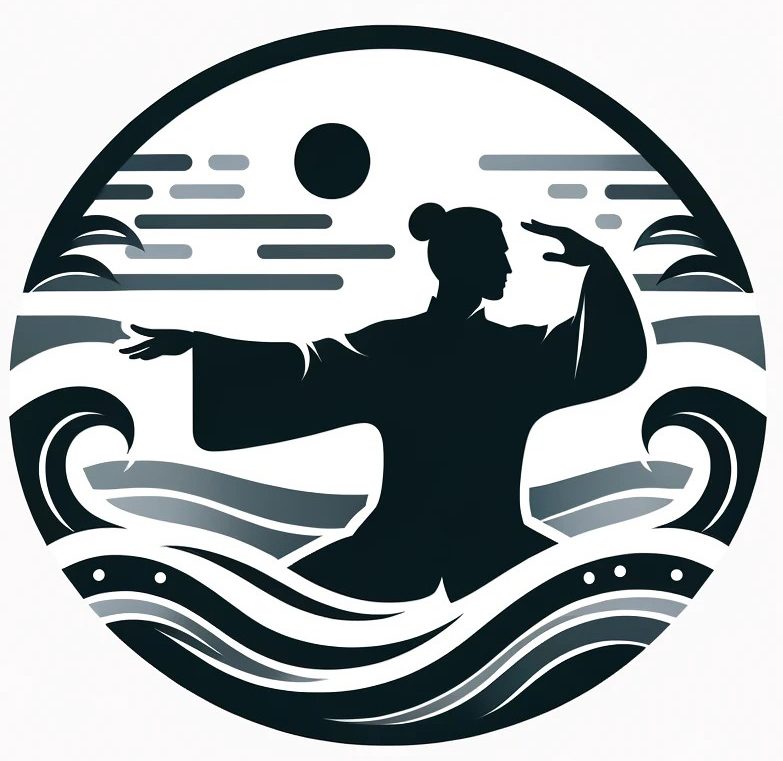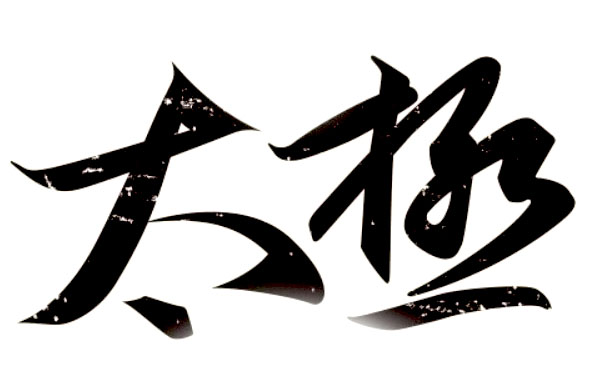As the saying goes, “After three years of learning boxing, you may lose your skills in just three days.” “One day of practice brings one day of progress; ten days without practice result in a hundred days of emptiness.” These sayings illustrate the importance of consistent practice in martial arts. Without the determination to practice diligently and view Tai Chi Chuan as a way of health preservation, not just a remedy for illness or a form of physical exercise, individuals are more likely to experience a decline in their skills. Once the skills are lost and various ailments arise, regrets will follow.
The rationale behind Tai Chi Chuan’s ability to heal is simple: smooth and active blood circulation leads to a healthy body. It is often said that “the human body’s blood circulation is like the Yangtze River, where every part reached is invigorated, and every part unattended is injured.” Tai Chi Chuan says, “The rationale behind Tai Chi Chuan’s healing ability is straightforward: smooth and active blood circulation leads to a healthy body.” These two statements highlight the importance of unobstructed blood and energy circulation for overall health. People who are not physically active or those who are weak and ill often experience stagnation or blockage in the circulation, leading to weakness, illness, and premature aging. Practicing Tai Chi Chuan regularly can invigorate the Qi and blood, promote smooth blood circulation, enhance metabolism, boost physical and mental health, and slow down the aging process.
The amount of movement in Tai Chi Chuan can be adjusted to suit people of all ages. For health and well-being, active participation in Tai Chi Chuan from a young age is ideal. By practicing consistently throughout life, one can develop the habit of exercise, resulting in a higher level of physical fitness compared to peers who are less active. In general, this has significant strategic implications for enhancing the nation’s overall health.
The fitness benefits of Tai Chi Chuan also lie in its sustainability. Just like walking, as long as you have sincerity and perseverance, Tai Chi Chuan can become a lifelong form of exercise.
In this sense, Tai Chi Chuan can be compared to a treasure mountain. If you persist in practicing it until old age, you will gain priceless benefits. Conversely, if you learn it but lack persistence, giving up halfway, it will be as if the treasure mountain is empty.
However, not many people can persist in practicing Tai Chi Chuan throughout their lives. It requires promoting a tenacious martial spirit and advocating the principle of “practicing Tai Chi Chuan for life, as true ability comes from dedication” in the field of health preservation. It is not about practicing for a short period just for the sake of it. By inspiring oneself with the mindset of “living to old age, learning to old age, and practicing to old age,” and “as long as life goes on, the practice of Tai Chi Chuan continues,” the practice of Tai Chi Chuan will undoubtedly bring unexpected fitness benefits in the future. A person’s physical and mental health will undoubtedly provide a greater “intangible asset” to society.
The health preservation and disease prevention functions of Tai Chi Chuan are evident. In the past century, Tai Chi Chuan has clearly evolved towards the direction of health preservation, medical sports, and fitness. For example, slowing down the speed of practice, reducing the difficulty and intensity of movements, emphasizing variations in stance heights and movement amounts based on individual needs and timing are all oriented towards fitness. Simultaneously, it continues to maintain its five major functions: fitness, recreation, longevity, therapy, and self-defense.
The saying goes, “Externally, practice the muscles, bones, skin, and flesh; internally, practice one breath of Qi.” Another saying is, “Externally, practice the muscles, tendons, fascia, skin, and hair; internally, practice the will, essence, spirit, and Qi.” In short, practicing Tai Chi Chuan must involve both external and internal aspects, encompassing the physical and mental aspects. Among them, the psychological willpower is fundamental in determining whether a person can excel in Tai Chi Chuan and, more importantly, “practice Tai Chi Chuan for life.”
The principle of practicing Tai Chi Chuan requires daily practice, regardless of the season, and lifelong dedication to the art. Those who can achieve this will undoubtedly benefit for a lifetime.
Whether one can persistently practice Tai Chi Chuan throughout the year is a test of a person’s willpower. In general, this is directly related to one’s cultural quality and spiritual cultivation.
Regarding martial ethics, martial spirit, mental attitude, and cultivation all fall within the realm of internal practice. Through long-term Tai Chi Chuan practice, the qualities of calmness, concentration, and composure can be developed, fostering a relaxed and unhurried approach to daily matters. It cultivates virtues like sincerity in dealing with others, perseverance in mastering skills, broad-mindedness, and self-cultivation. These mental aspects are like steel that needs to be tempered. They are vital for a person’s psychological well-being.
Ancient Chinese medical classics have pointed out the significant role of regulating the spirit in improving physical health. For example, in the “Suwen: Shang Gu Tian Zhen Lun,” it states, “Maintaining tranquility and voidness allows true Qi to follow;
guarding the spirit internally brings peace in illness.” Tai Chi Chuan emphasizes the importance of tranquility and smoothness of the mind and concentration. For example, the “Thirteen Postures Song” by Wang Zongyue in the Qing Dynasty says, “In stillness, find motion; in motion, retain stillness,” “Qi circulates without hindrance throughout the body,” “With every movement, focus on the waist, the abdomen relaxed and calm, the Qi rises naturally.” Although these are martial principles, they share common ground with the above-mentioned medical principles. While one pertains to medical theories and the other to martial principles, they are interconnected.
The “Suwen: Si Qi Tiao Shen Da Lun” also discusses the health preservation method of regulating the spirit, stating, “Therefore, the wise do not treat illness after it occurs; they treat before it happens. They do not handle chaos after it erupts; they handle before it arises. It’s like digging a well when thirsty, or forging a weapon when in battle—too late!” This is a preventive approach, which can be summed up in modern terms as “prevention is better than cure.”
By maintaining tranquility and nurturing the spirit, a person can lead a peaceful and content life, reducing adverse mental stimuli and preventing harm from the seven emotions. This fosters better health and contributes to a long and fulfilling life.
As it is often said, “Martial arts and medicine are intertwined; one skill serves two purposes.” This saying holds true.
The ancient Chinese medical classic “Suwen: Si Qi Tiao Shen Da Lun” also discusses the health preservation method of regulating the spirit, stating, “Therefore, the wise do not treat illness after it occurs; they treat before it happens. They do not handle chaos after it erupts; they handle before it arises. It’s like digging a well when thirsty, or forging a weapon when in battle—too late!” This is a preventive approach, which can be summed up in modern terms as “prevention is better than cure.”
By maintaining tranquility and nurturing the spirit, a person can lead a peaceful and content life, reducing adverse mental stimuli and preventing harm from the seven emotions. This fosters better health and contributes to a long and fulfilling life.
One is to prevent potential hazards in advance, which means preventing diseases before they occur. The other is to prevent the transmission and progression of diseases, such as spreading or developing into other ailments, after the onset of illness. The former falls within the scope of health preservation, which allows Tai Chi Chuan to fully utilize its functions in fitness (physical and mental well-being), recreation (enjoyment and relaxation), and longevity (slowing down the aging process). However, disease prevention measures are not limited to Tai Chi Chuan alone.
The latter belongs to the medical realm, which involves early diagnosis and treatment after the onset of illness to control its development and evolution in a timely manner. In this case, Tai Chi Chuan can only play a supportive role. Under the guidance of a doctor, participating in comprehensive treatment for some conditions can help patients gradually enhance their physical and mental resistance through Tai Chi Chuan activities and engage in a resilient battle against the disease. However, not all illnesses are suitable for this approach, especially for some acute and critically ill patients or those whose bodies are too weak to practice Tai Chi Chuan at the moment. It is essential to consider individual factors, the specific illness, and timing to achieve good therapeutic effects.
There is no panacea that can cure all diseases, and there is no universal medical sport, and Tai Chi Chuan is no exception. Patients who use Tai Chi Chuan as an adjunct to medical treatment should persist consistently to obtain tangible and lasting benefits. Some people who practice Tai Chi Chuan for healing often seek quick results and hope to recover from their illness in a short period. When they do not achieve their goals, they stop practicing. Others may practice Tai Chi Chuan for an extended period and, with the help of comprehensive treatment (such as medication and other therapies), successfully cure their diseases and achieve their objectives but then stop practicing. However, these individuals might only experience short-term or moderate benefits, not significant or long-term effects.
In conclusion, we should not exaggerate the efficacy of Tai Chi Chuan in health preservation and disease treatment, nor should we practice it sporadically. By persistently practicing Tai Chi Chuan, you will discover that its impact goes far beyond what you may have expected, being enriching and far-reaching.


